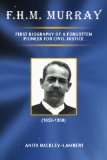I don’t particularly like the idea of a “Black History Month”, though I recognize that – at the time it was conceived – this was about the only way to get the American mainstream to recognize that we even had a history beyond that of degradation and privation.
The next step (which may take us another hundred years or so) is to bring about the recognition that Black history is American history. You can’t have one without the other because these are not stories that have run on separate tracks, but clearly interwoven lives, tragedies and triumphs.
In the U.S. history books, school books of yore (and perhaps today as well) the history of whites in the Americas dominates the narrative, with non-whites, non-Europeans – should they be mentioned at all – sort of drifting on and off the stage as not even supporting cast, but extras and fillers whose contributions are not integral to the plot. The central part of the story, as told then, could continue on its arc with or without these nameless, faceless bit players.
Patently untrue, of course – but believed, to this day, by many.
Even the narratives of those Black historical figures whose names are familiar to most every school child – Frederick Douglass, Harriet Tubman, Martin Luther King, Jr. and so on – are presented as Black stories, not American stories, and are emphasized primarily only during Black History Month. And even they are at times presented as outliers, above and beyond the norm within cultural Black America.
This, partly, is why it is so necessary for us to – over and over again, for as long as it takes and beyond – tell our own tales, our histories, the lives of those ancestors of ours who were ordinary heroes whose daily lives were – mundane though they may seem – studies in survival, triumph, dignity and often joy.
Our stories – Black, Latino, Native American, Asian, Jewish and more – in America are American stories. Without us, the continent, the U.S. in all its often overbearing wealth, hubris as well as its generosity, would not exist as it does today.
I will, this month and always, be not only writing about my own history and about the people I find shoved into a corner somewhere, forgotten, but will also seek out others who have written/are writing about their own historical finds and treasures and highlighting those. With enough of us talking, maybe someday we’ll be heard.

